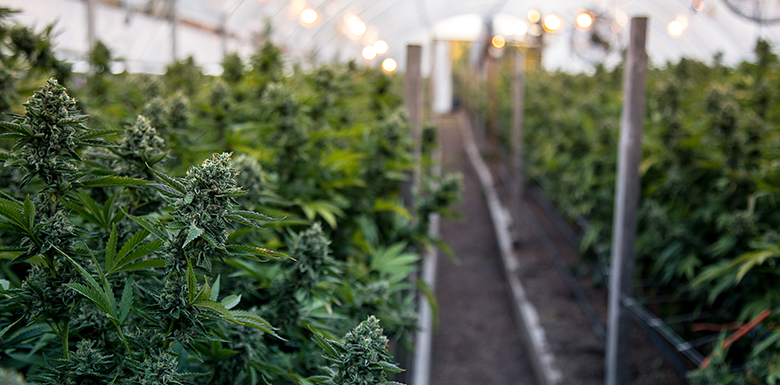Because cannabis remains illegal under federal law, cannabis businesses cannot go through the U.S. Department of Agriculture’s certification program to label their products as organic. California is therefore, creating comparable-to-organic cannabis standards to rectify this. While products won’t be labeled “organic,” they’ll be identified as compliant with “OCal,” the nickname for the certification program.
As it stands, the pesticides currently allowed for cannabis would meet organic standards. But cultivators of marijuana must stop using synthetic nutrients and non-organic fertilizers. Some businesses already do this and label their products as “green,” “sustainable,” or “clean.”
Marijuana businesses interested in obtaining organic certification once the program is up and running would benefit from consulting with a California marijuana business lawyer. Attorney Jessica McElfresh is highly experienced in the cannabis industry, particularly regarding cannabis regulatory compliance and environmental standards. She’s ready to help new and established businesses reach OCal certification. Call today at (858) 756-7107 to schedule an initial appointment.
1. Regulators Have Until 1/1/21
The California Department of Food and Agriculture (CDFA) has until January 1, 2021, to officially establish an organic cannabis certification program (OCal) that is similar to the National Organic Program and the California Organic Food and Farming Act. The CDFA published its proposed regulations in April 2020 and accepted public comment through early July.
Cannabis businesses that meet OCal requirements can apply for certification next year. Once CDFA grants certification, growers and distributors can label their products as OCal compliant. The California Department of Public Health will certify manufacturers.
2. The Program Focuses on Sustainability & Conservation
Cannabis cultivators interested in OCal certification might need to enhance their sustainability practices and conservation efforts. The program isn’t simply about pesticides, herbicides, and additives. It focuses on organic farming systems that support healthy soil, reduce the need for fossil fuels, and reduce waste. It also requires businesses to use appropriate practices to conserve biodiversity and promote ecological balance.
3. Businesses Need a Comprehensive Plan
Cultivators and distributors will develop site-specific plans. These plans must include detailed descriptions of their general practices, procedures, sourcing and use of production input and material substances, monitoring practices, recordkeeping, management practices, and commingling preventions, and conservation efforts.
The proposed OCal regulations contain eight Articles. Article 3 includes cultivation and distribution requirements. Businesses must not use prohibited substances, including for three years before harvest. The land used to cultivate cannabis must be separated from coming into contact with prohibited substances from nearby land. They must use farming techniques to minimize erosion and maintain or improve the soil, as well as farming techniques to manage pests, weeds, and disease.
Also, they cannot use synthetic substances that aren’t specifically allowed. Once cultivated, OCal cannabis cannot be commingled with non-OCal cannabis.
4. Businesses Should Review their Substances & Inputs Now
Interested cannabis businesses can get a head start by reviewing whether their substances and inputs are prohibited. Under OCal, products must be produced without:
- Synthetic and prohibited non-synthetic substances (except as provided in The National List of Allowed and Prohibited Substances);
- Substances prohibited by the California Department of Pesticide Regulation for use on cannabis;
- The use of excluded methods, ionizing radiation, and sewage sludge; and
- The use of agricultural inputs that utilize OCal prohibited substances, methods, and ingredients.
5. Expect Multiple Inspections
Certification require a minimum initial on-site inspection and an annual on-site inspection by a registered certifying agent. The program also might necessitate other on-site compliance inspections, which could be random or scheduled. Any on-site inspections will end with an exit interview to ensure businesses are aware of an inspector’s facts and findings.
6. Businesses Could Be Fined for Mislabeling Products
OCal specifies when and how certified cannabis businesses can label their products as OCal compliant. Businesses that knowingly label or sell their products as part of OCal without certification can be fined up to $17,952 per violation. A certified program could be fined up to $20,000, and a registered certifying agent could be fined up to $25,000 for violating the OCal program.
Contact a Cannabis Business Lawyer for Advice
OCal certification could be helpful for businesses that want to reach discerning customers. But the certification process requires marijuana businesses to go above and beyond in their sustainability and conservation efforts. Businesses can benefit from talking with an experienced cannabis regulatory compliance attorney about the upcoming regulations and what to expect from the certification process.
To learn more about California cannabis regulations and potential organic certification, call McElfresh Law at (858) 756-7107 or use the online form to schedule an appointment.
https://www.ccof.org/sites/default/files/Review%20of%20the%20California%20State%20Organic%20Program%20-%20CCOF%202015%20web.pdf
https://mjbizdaily.com/california-organic-certification-plan-could-help-cannabis-growers-bottom-line/
https://www.cdfa.ca.gov/calcannabis/documents/OCal_PROPOSED_REGULATION.pdf
https://www.gleamlaw.com/organic-cannabis/
https://www.cdfa.ca.gov/calcannabis/ocal.html
https://kymkemp.com/2020/04/30/standards-for-comparable-to-organic-cannabis-proposed-by-california-department-of-food-and-agriculture/
https://www.omarfigueroa.com/overview-of-proposed-ocal-comparable-to-organic-regulations/
